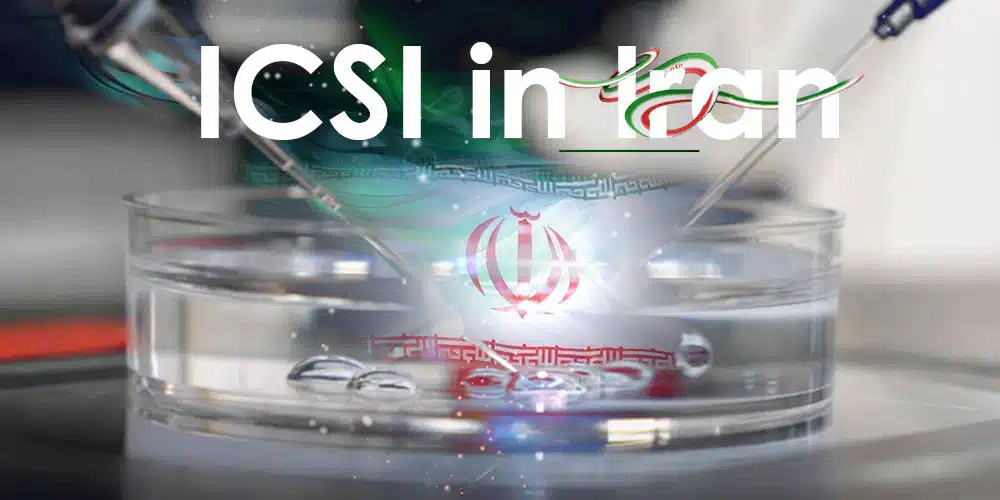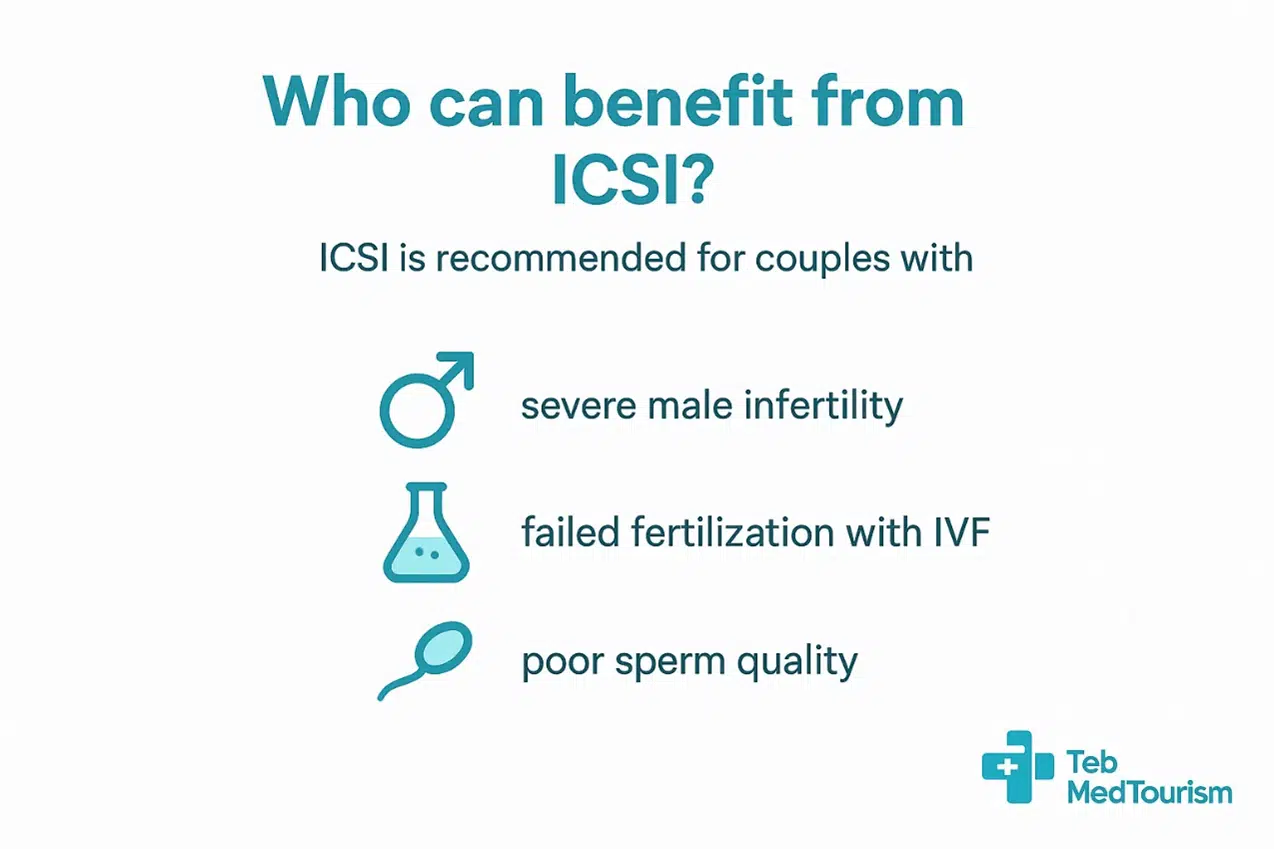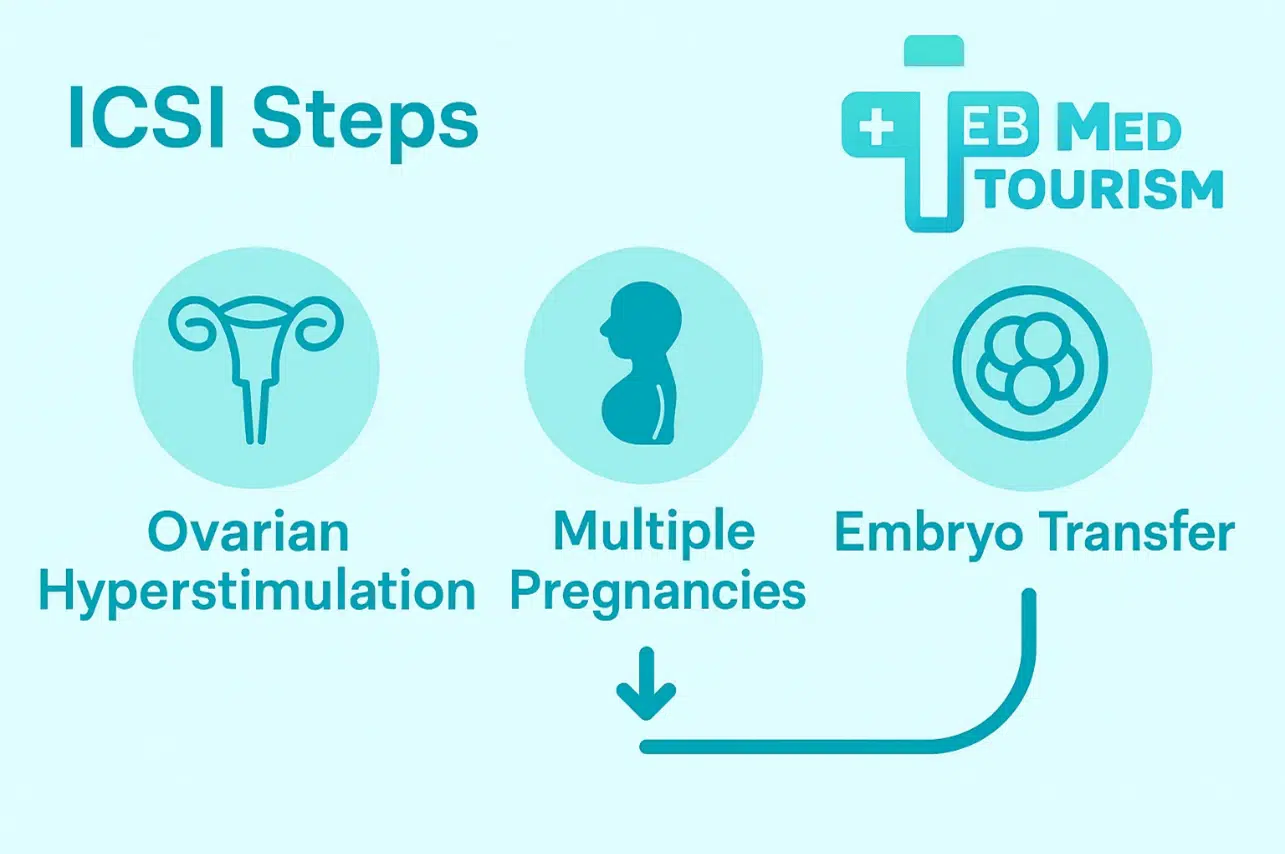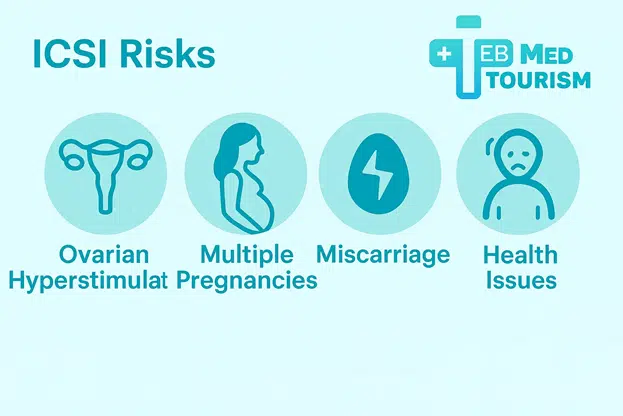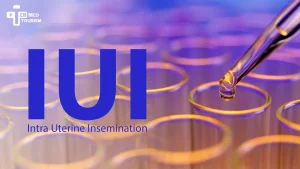ICSI in Iran can help couples feel the joy of parenthood and grow their families. Even though choosing Iran as your fertility destination is your best choice, it is also important to choose a trusted company and an experienced clinic with expert medical professionals in order to ensure the best possible result, which will be discussed in this article.
What is ICSI?
ICSI (intracytoplasmic sperm injection) is a method for treating infertility. It is done in a lab by injecting live sperm into an individual’s eggs. Fertilized eggs, or embryos, can be produced via this process. IVF and ICSI are closely related procedures — in vitro fertilization (IVF) is a type of ICSI technique that helps couples overcome infertility, especially in cases of male factor infertility.
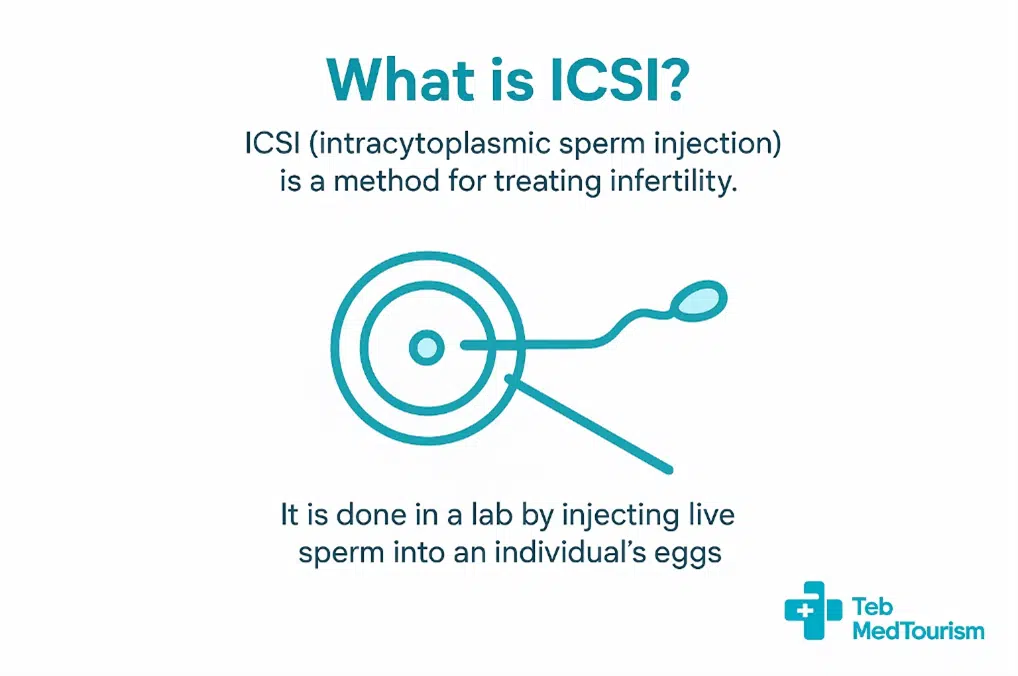
The term “intracytoplasmic” (IN-truh-sahy-tuh-PLAZ-mik) describes the fact that the procedure for sperm injection occurs inside the cytoplasm of an egg. This gel-like material, which is composed of salt, water, and other molecules, is found in the middle of an egg.
When is ICSI recommended?
Male infertility sufferers benefit most from ICSI. ICSI may be suggested by your healthcare physician if someone has:
- The inability to ejaculate is known as anejaculation.
- Their male reproductive system is blocked.
- Low number of sperm.
- Low-quality sperm.
- Semen flows backward into their bladder during retrograde ejaculation.
ICSI may also be required if:
- Embryos have not been produced by conventional IVF.
- The egg supplier is over 35 years old.
- You are attempting to conceive using cryopreservation, which involves using previously frozen eggs or sperm.
Who is a Good Candidate for ICSI?
Couples who have gone through infertility can benefit from ICSI, particularly if the problems are male-related. Men with serious infertility problems, such as a low sperm count, are good candidates for ICSI. Men with problems with sperm motility, sperm development, or an obstruction that stops sperm from ejaculating, like a vasectomy, are also potential candidates.
ICSI may still be an option for males without problems with sperm motility, development, or count. ICSI may be helpful for couples whose prior attempts at in vitro fertilization have failed.
Additionally, ICSI therapy is frequently an excellent option for couples who want to test for specific genetic issues. In the following, we will mention some of the conditions that make couples good candidates for ICSI:
IVF may be an excellent option for you if you:
- Are older, making less invasive therapies less likely to be successful.
Suffer from damaged or obstructed fallopian tubes. - Have infertility issues without an identified cause.
- Possess little sperm or sperm that move or form strangely.
- Suffer from ovulation issues.
- Have attempted unsuccessful alternative treatments.
- Have plans to carry the pregnancy through a surrogate.
What are the steps of ICSI?
The steps for performing ICSI are explained in detail below.
Induction Ovulation
The ovary’s reaction to external stimulation, whether direct or indirect, is known as ovulation induction. The purpose of ovulation induction is to help females of reproductive age who are infertile because of anovulation. This exercise examines a reproductive female’s capacity for ovulation as well as aided ovulation in anovulatory females.
Oocytes collection
An important part of the ICSI process is egg retrieval, which takes place about 34–36 hours after ovulation is triggered. A thin, ultrasound-guided needle is used to carefully remove mature eggs from the ovaries while the patient is sedated or under anesthesia. Every egg is carefully removed from its growing follicle.
To make sure they are in the greatest possible condition for fertilization and embryo growth, these eggs are immediately examined and ready for the following stage of ICSI after being retrieved. To increase the likelihood of a successful pregnancy with assisted reproductive procedures, this procedure is essential.
Sperm collection and preparation
In the ICSI procedure, sperm retrieval entails gathering sperm for fertilization. When sperm are absent from ejaculation, this can be accomplished surgically or by ejaculating on the day of egg retrieval.
Before being chosen for the ICSI process, which involves injecting one sperm into each mature egg, the recovered sperm must first undergo processing in the lab.
This stage guarantees that even in situations where the number or quality of sperm is low, fertilization can still be accomplished effectively.
Fertilization
Each mature egg is directly injected with a single sperm as part of the ICSI fertilization process. In the laboratory, sperm and eggs are carefully prepared in advance.
Under a microscope, a single sperm is injected into the cytoplasm of each mature egg using a tiny needle during the ICSI process, guaranteeing accurate fertilization.
The chances of a successful fertilization and subsequent embryo development are increased by this procedure, which is essential for overcoming male infertility problems, including low sperm count or poor sperm motility.
ICSI Procedure in Iran (Step by Step)
In the following, we will go through the administrative process of doing ICSI in Iran by TebMedTourism, the best infertility treatment in iran and worldwide:
- Getting to know us through the website, Facebook, Instagram and patients’ experiences
- Consultation with TebMedTourism fertility specialists
- Review of medical history and treatments you have received in the past by our experts and physicians
- Sharing medical record with us, including general laboratory tests, sperm and egg analysis, DFI, ultrasound of the uterus and ovaries, etc.
- TebMedTourism fertility experts’ assessments
- Fertility plan customization
- Choosing infertility treatment package including medical and non-medical (consisting of visa, hotel, translator, city tour, etc.) services
- Entrance to Iran
- 1st fertility specialist appointment
- Complementary laboratory test
- Starting the medications: all of the injections will be done by TebMedTourism nurses at your hotel!
- Ultrasound every 3 days to evaluate ovarian follicle growth
- Egg retrieval, which would be done on day 10-14 depending on your body’s response to stimulation
- perm collection
- Using fresh egg and sperm for ICSI procedure
- Growth of embryo in laboratory (3-5 days)
- Evaluation of embryos’ growth
- Embryo freezing: every 1-3 embryos in 1 cryotube. You should consult with our expertise for choosing this plan!
- Pregnancy test (after 14 days)
- Congratulations! Happy parenthood!
Advantages of ICSI
In cases of poor overall failure, ejaculation troubles, and other male infertility concerns, ICSI treatment in Iran is unquestionably a viable alternative. ICSI treatment is undoubtedly beneficial for those who are dealing with these issues. It gives the male partner the chance to use his own sperm to create a kid.
Before choosing donor sperm for viable sperm, couples can also undergo ICSI. It is possible to do ICSI on a man who has had a vasectomy. Then, using specialized sperm retrieval techniques, viable sperm can be directly removed from testicles and inserted into the egg.
In cases of poor overall failure, ejaculation troubles, and other male infertility concerns, ICSI treatment in Iran is unquestionably a viable alternative. It gives couples an opportunity to use their own sperm and eggs for conception instead of relying on donors.
Risks and Effects of ICSI
ICSI is widely regarded as a treatment with few related risks. ICSI does, however, have several dangers and drawbacks, just like any other medical procedure. The male partner is not at risk from the process once the sperm is obtained. The methods used for sperm retrieval pose the only hazards, but they are minimal. Known risk factors for ICSI include:
- Damage to the embryo: Not every fertilized egg develops into a healthy embryo. Certain eggs and embryos may sustain damage during the ICSI procedure.
- Multiple pregnancy: ICSI and IVF couples have a 30–35% risk of getting twins and a 5%–10% chance of getting triplets. This is often referred to as the ICSI twins rate, which is higher compared to natural conception. Certain pregnancy and delivery issues, such as high blood pressure, gestational diabetes, low amniotic fluid levels, early labor, or the necessity for a cesarean section, are more likely to occur when the mother carries multiples.
- Birth defects: With a typical pregnancy, there is a 1.5%–3% chance of a serious birth defect. Although it is uncommon, ICSI treatment marginally raises the risk of birth abnormalities.
Angelman syndrome, Beckwith-Wiedemann syndrome, sex chromosomal abnormalities, and hypopadias are among the birth disorders linked to ICSI. Additionally, there is a tiny increase in the likelihood that a male offspring would have fertility problems. It is possible for infertility to be inherited.
The patient’s health state and unique circumstances determine the procedure’s success. According to a study, 25% of patients are able to conceive with just one ICSI try. Instead of being a guarantee of pregnancy, the technique should be viewed as a means of combining the sperm and the egg.
ICSI Treatment in Iran 2026
Iran is one of the most popular countries for all medical tourists who are looking for high-quality treatments and, at the same time, affordable costs. ICSI in Iran is one of the best options for couples who have difficulty having children naturally and need some medical help.
In addition to the high standard of care, Iran is a popular travel destination because of the favorable exchange rate of other currencies relative to Iran’s Rials. Intracytoplasmic Sperm Injection (ICSI) is one of the most popular technologies that is used for treating infertility in both genders.
ICSI in Iran is one of the highly used reproductive technologies that is done in fertility centers under the supervision of highly experienced embryologists. There are so many advantages to doing ICSI in Iran by TebMedTourism, including:
- Free Consultation: You can do a free consultation with our fertility experts and ask your questions. You can ask us your questions before, during, and after treatment procedures!
- High Success Rate: ICSI success rate in Iran is around 60%, which is comparable to leading fertility centers worldwide. This success rate is competitive on an international scale and makes Iran an appealing option for couples seeking ICSI treatment.
- Affordability: The ICSI cost in Iran with TebMedTourism is about $3,500. This cost is comparatively affordable when compared to similar treatments in other countries.
- Comprehensive Packages: The ICSI packages offered by us cover various aspects of the treatment process. This includes initial consultations, doctor’s appointments, medications, ultrasounds, lab tests, egg and sperm collection, the ICSI procedure, embryo transfer, and follow-up consultations.
Experienced Medical - Professionals: TebMedTourism emphasizes the involvement of top doctors and highly experienced embryologists in the treatment process. This ensures that patients are treated by experts in the field.
- Convenience: We go beyond medical services by providing non-medical packages that encompass visa assistance, accommodation, transportation, translation services, and other conveniences. This aims to make the entire process smoother and more convenient for international couples seeking treatment in Iran.
- No Waiting List: One of the advantages of doing ICSI in Iran is not having a waiting list. This can mainly attract couples eager to undergo treatment as soon as possible.
IVF with ICSI in Iran
It can be said that IVF and ICSI are closely connected — ICSI is a specific step within the IVF process where sperm is directly injected into the egg. This approach is especially beneficial for couples dealing with male infertility factors such as low sperm count or motility.
One of the pros of doing ICSI in Iran is the affordability of the costs of treatment. The cost of ICSI in Iran by TebMedTourism is only $3300 to $3500. The treatment process will be done by top doctors and embryologists who are among the most experienced experts in this field.
ICSI Packages in Iran, by TebMedTourism, include all medical and non-medical processes from the initial consultations, doctors’ appointments, medications (stimulant drugs and supplements), ultrasounds, lab tests, egg and sperm collection, ICSI process, embryo transfer, and follow-up consultations.
As we said, TebMedTourism also provides non-medical packages, including visas, accommodation, transportation, translators, and other services to make your ICSI process as convenient as possible.
ICSI Success Rates in Iran
The success rate of ICSI in Iran is high. The effectiveness of Intracytoplasmic Sperm Injection (ICSI) can differ based on various elements such as the clinic’s expertise, the female partner’s age, underlying fertility problems, and overall well-being.
TebMedTourism boasts a remarkable ICSI success rate of over 60%, thanks to its experienced specialists and advanced laboratory facilities. You can do a free consultation with our experts to know more information about your ICSI treatment journey in Iran. Call us now!
ICSI Cost in Iran
Besides high-quality facilities and fertility experts, ICSI in Iran is as cheap as you think! ICSI cost in Iran is just $3500 with the TebMedTourism clinic.
How Long Does the ICSI Process Take in Iran?
A full process of ICSI in Iran can be completed in less than a month. The process begins with various tests, including general and hormonal tests, ultrasounds of the uterus and ovaries, viral lab tests, and a sperm analysis.
Once the woman’s menstruation cycle begins, she will be prescribed medication tailored to factors such as age, weight, and height. After retrieving eggs and collecting sperm, the embryos are created in a laboratory.
On day 17 or 18 of the cycle, the embryo(s) is/are transferred to the woman’s uterus. About two weeks later, a blood test is performed to determine if the pregnancy was successful.
What is the difference between ICSI and IVF?
In the IVF and ICSI procedures, sperm and eggs are collected for fertilization in a lab dish, and the embryos are then raised in an incubator for three to five days before being placed in the womb for implantation and pregnancy.
ICSI differs from IVF in that ICSI involves the careful injection of sperm into an egg by an embryologist under a microscope, while IVF is accomplished by natural sperm penetration.
Conclusion
In this article, we provide a complete explanation of ICSI in Iran, its costs, method, benefits, and risks. ICSI has become one of the most reliable and efficient treatments for infertile couples in Iran. Iran is a great country to get pregnant using assisted reproductive technology because of its advanced fertility centers, reasonable prices, and high success rates.
Because of the nation’s advanced labs, highly qualified medical staff, and tailored treatment, every couple has the best chance of experiencing the joys of motherhood.
If you’re considering ICSI abroad, TebMedTourism is your ideal partner. As one of Iran’s leading medical tourism facilitators, TebMedTourism offers comprehensive fertility packages, including medical treatment, accommodation, visa support, translation services, and city tours—all designed to make your journey smooth and stress-free.
Is IVF allowed in Iran?
Yes. IVF and ICSI are completely legal and widely practiced in Iran. The country is recognized for its advanced fertility clinics, experienced specialists, and supportive regulations that make assisted reproductive treatments accessible to both local and international patients.
How much does ICSI cost abroad?
The cost of ICSI varies by country, but it can range from $4,000 to $10,000 or more in many places. In contrast, ICSI in Iran costs only around $3,300–$3,500 at TebMedTourism, offering world-class treatment at a fraction of the international price.
What is the success rate of ICSI in Iran?
With an ICSI success rate of over 60%, Iran is comparable to the world’s top reproductive clinics. The high incidence can be attributed to modern technology, personalized fertility treatments, and the expertise of Iranian embryologists.
How to Increase the Chance of ICSI Success?
Choosing a reputable fertility clinic like TebMedTourism, adhering strictly to your doctor’s prescription regimen, eating a balanced diet and leading a healthy lifestyle, controlling stress, and abstaining from alcohol and tobacco before and during treatment can all increase your chances of success with ICSI.
Which is the best and cheapest country for ICSI?
Iran is believed to be among the best and most well-liked countries for ICSI. Iran, particularly through TebMedTourism, provides exceptional quality and value for couples seeking infertility treatment overseas. Its highly qualified fertility specialists, state-of-the-art labs, 60% success rate, and $3,300 beginning price make it an excellent choice.







